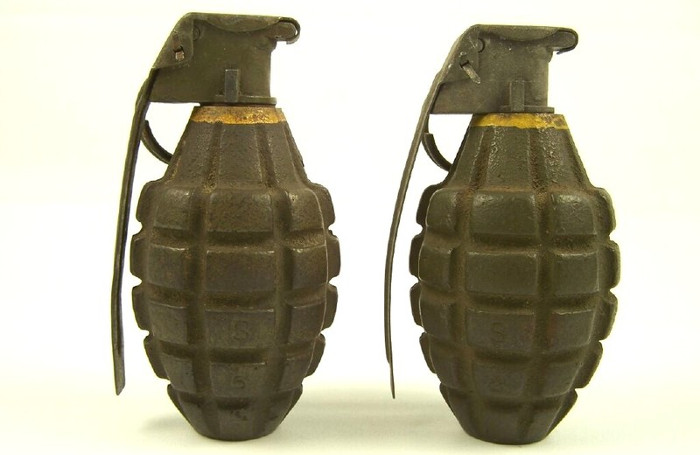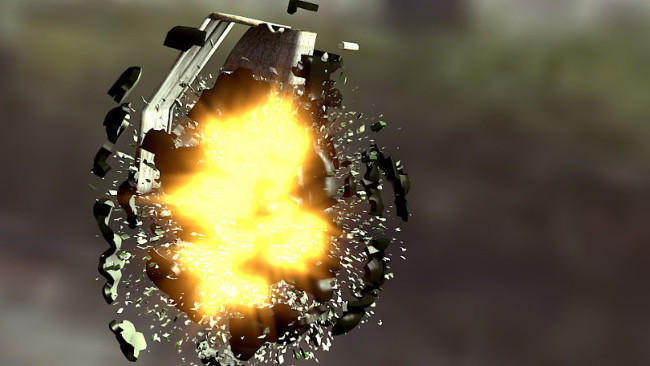Explosive grenades on land and underwater, where is more dangerous to humans?
Pictures of explosive grenades are quite familiar to us in war films. Let's learn about the structure of grenades and how dangerous it is to explode on ground and underwater?
Grenades are another form of explosives. The name grenade comes from the word "Pomegranate", in French meaning pomegranate.

Structure of grenades
Grenades have two main parts:
- Flammable materials: gunpowder, explosives to create explosions.Now people also use other materials such as materials to create fire, materials to create smoke, tear gas, poison gas, . to create many other types of grenades.
- Ignition system: detonator has the function of activating the internal material to explode.There are 2 main types of detonators: timer detonator and contact and impact detonator.
On land and underwater, where is more dangerous to humans if there are explosive grenades?

If the grenade explodes on land
When explosive grenades, shell pieces, iron balls, metal pieces are stuffed inside, shock waves, . will fire around with tremendous speed and cause great damage within a radius of 5. meter. Therefore, if the grenade explodes on the ground, quickly find shelter, hidden corners, and shielding if you do not keep it in time, just head down towards the center of the explosion and reduce the damage to the lowest level. If there are ponds or lakes nearby, quickly jump down and hold your breath, when the grenade explodes.

If grenades explode under water
In water, the resistance is higher than in the air, so the pieces of grenades or even warheads cannot go far. But it caused shock waves. If on the ground, this type of wave is easily dissipated in the air. In the water environment, shock waves easily spread at great speed with energy coming out around.
The boys in the video below have progressed into an interesting experiment to learn about the danger level of grenades when exploding underwater.
A balloon contains both air and liquid that represents the lungs, blood and water of the human body. Therefore, to ensure safety, they replaced the human body with these balls when conducting experiments in swimming pools.
Watching the video, we can see that no ball has been crushed but under the impact of shock waves they are deformed. If human organs are so horribly deformed, it will cause severe internal shock that can lead to death.
So if you are in the water with a grenade, try to swim as far as you can or get out of the water before it can explode.
You should read it
- ★ The safe way to stand next to the PUBG explosive grenade
- ★ The supernova exploded twice in the universe, surprising astronomers
- ★ Teenage girl killed by Nokia 5233 exploded while calling
- ★ iPhone 6S suddenly exploded on the table
- ★ 11 interesting photos that explain the questions about the world around us